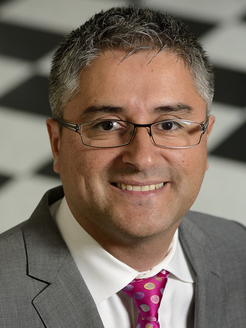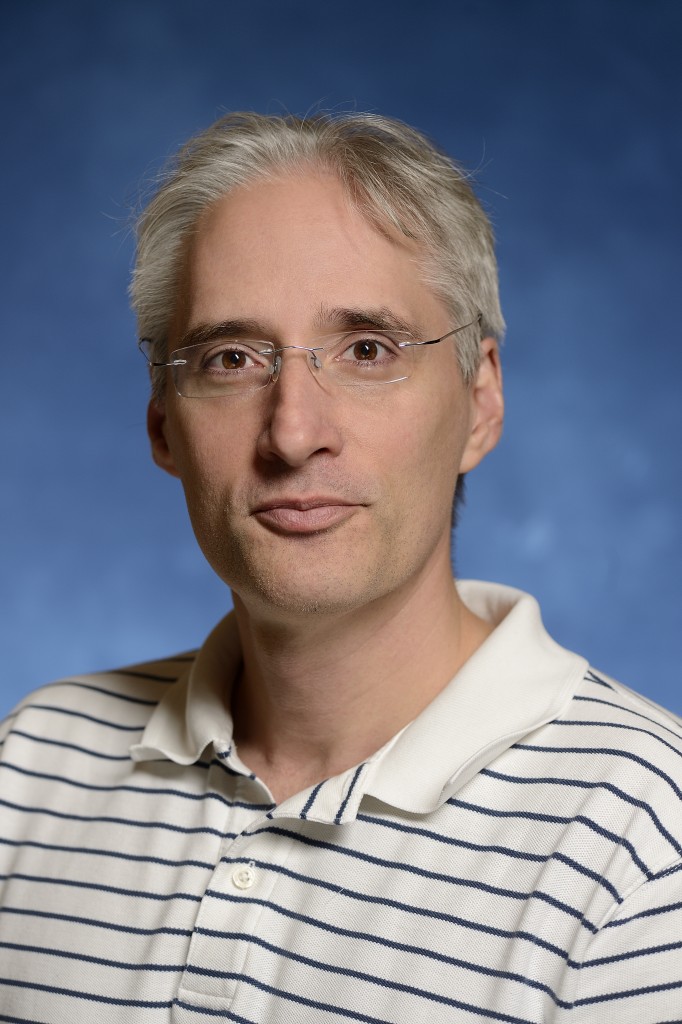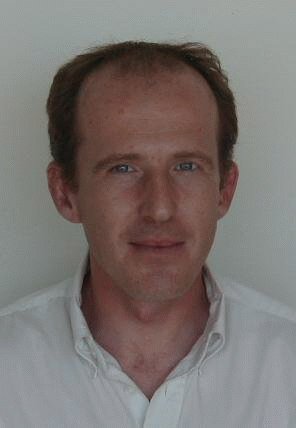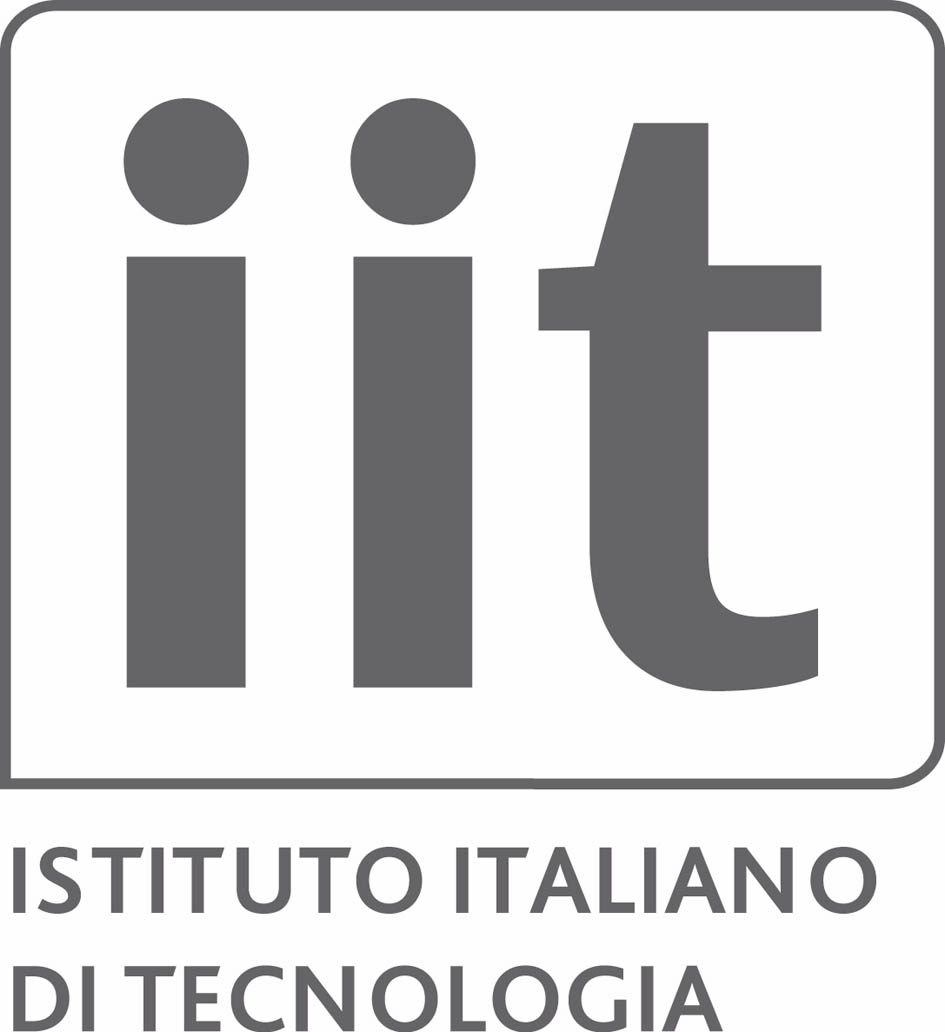René Vidal (The Johns Hopkins University)

- Professor in the Department of Biomedical Engineering at The Johns Hopkins University.
- His research areas are biomedical image analysis, computer vision, machine learning, dynamical systems theory and robotics.
He is particularly interested in the development of mathematical methods for the interpretation of high-dimensional data, such as images, videos, and biomedical data.
In particular, he has developed methods from algebraic geometry, sparse and low-rank representation theory for clustering and classification of high-dimensional data,
and methods from dynamical systems theory for modeling and comparison of time series data. Applications include motion segmentation, dynamic texture classification,
object and activity recognition in images and videos, surgical skill and gesture recognition in kinematic and video, segmentation and registration of brain images,
and classification of cardiac myocytes.
Gregory Chirikjian (The Johns Hopkins University)

- Department of Mechanical Engineering, The Johns Hopkins University, Baltimore, MD, USA.
- Dr. Gregory Chirikjian is a professor at Department of Mechanical Engineering, The Johns Hopkins University, Baltimore, MD, USA. He was Program Director at the National Science Foundation from September 9, 2014 to September 8, 2015. He received Ph.D. degree in 1992 from California Institute of Technology and B.A. and B.S. degrees from The Johns Hopkins University. He received several awards : NASA Certificate of Recognition, Outstanding Paper Award IEEE Robotics and Automation Conference, Selected as Program Director 2014), A.T. Yang Memorial Award (2014), ASME Mechanisms and Robotics Award (2014), IEEE Fellow (2010), ASME Fellow (2008), IEEE Senior Member (2008), ASME Design Engineering Division Certificate of Appreciation (2000), Presidential Faculty Fellow (1994), NSF Young Investigator Award (1993), Best Student Paper Award - Proceedings 2nd International Workshop on Advances in Kinematics (1990), NASA Fellow (1990) and General Electric Fellow (1988). He is interested in his research in Applied Mathematics (Applications of Group Theory in Engineering), Computational Structural Biology (in particular, computational mechanics of large proteins), Conformational Statistics of Biological Macromolecules, Designs and builds hyper-redundant robotic manipulator arms, Developed theory for 'hyper- redundant' (snakelike) robot motion planning and Self-replicating robotic systems.
Xavier Pennec (INRIA, Sophia Antipolis, France)

- INRIA, Sophia Antipolis, France.
- Dr. Xavier Pennec is senior Research Scientist (Directeur de Recherche) at Inria since 2007. He was previously Research Scientist at INRIA (1998-2007) and Post-doctoral associate at MIT (1997). His research interest is at the intersection of statistics, differential geometry, computer science and medicine.
He received the Graduate of the Ecole Polytechnique, Paris, France, specialization in Computer Science and Physics and Master degree (DEA), Ecole Polytechnique - Ecole Normale Supérieure, Paris, France, in Mathematical Computer Science and Applications, specialization in Geometric Computing, with highest honors, in 1992 and 1993 respectively. He received the Ph.D., Ecole Polytechnique, Paris, France, in Computer Science, with highest honors and Habilitation à diriger des recherches (HDR), Nice-Sophia Antipolis University in Computer Science in 1996 and 2006, respectively. He is particularly interested in the mathematics involved in computational anatomy: geometric statistics involve statistical computing on Riemannian manifolds and other geometric structures (Lie groups, quotient spaces, stratified spaces, information geometry...). He contributed mathematically grounded methods and algorithms for medical image registration, statistics on shapes, and their translation to clinical research applications: Geometric Statistics, Medical image registration (Demonology “contributions to the demon's algorithm”, Hierarchical locally affine deformations “Polyaffine”, 4D morphometry (Shape statistics with Currents, Measuring and modeling brain atrophy in Alzheimer's disease).
Daniel Lee (University of Pennsylvania)

- Department of Electrical and Systems Engineering, University of Pennsylvania, Philadelphia, PA, USA.
- Daniel Lee is the UPS Foundation Chair Professor in the School of Engineering and Applied Science at the University of Pennsylvania. He received his B.A. summa cum laude in Physics from Harvard University and his Ph.D. in Condensed Matter Physics from the Massachusetts Institute of Technology in 1995. Before coming to Penn, he was a researcher at AT&T and Lucent Bell Laboratories in the Theoretical Physics and Biological Computation departments. He is a Fellow of the IEEE and AAAI and has received the National Science Foundation CAREER award and the University of Pennsylvania Lindback award for distinguished teaching. He was also a fellow of the Hebrew University Institute of Advanced Studies in Jerusalem, an affiliate of the Korea Advanced Institute of Science and Technology, and organized the US-Japan National Academy of Engineering Frontiers of Engineering symposium. As director of the GRASP Laboratory and co-director of the CMU-Penn University Transportation Center, his group focuses on understanding general computational principles in biological systems, and on applying that knowledge to build autonomous systems.










